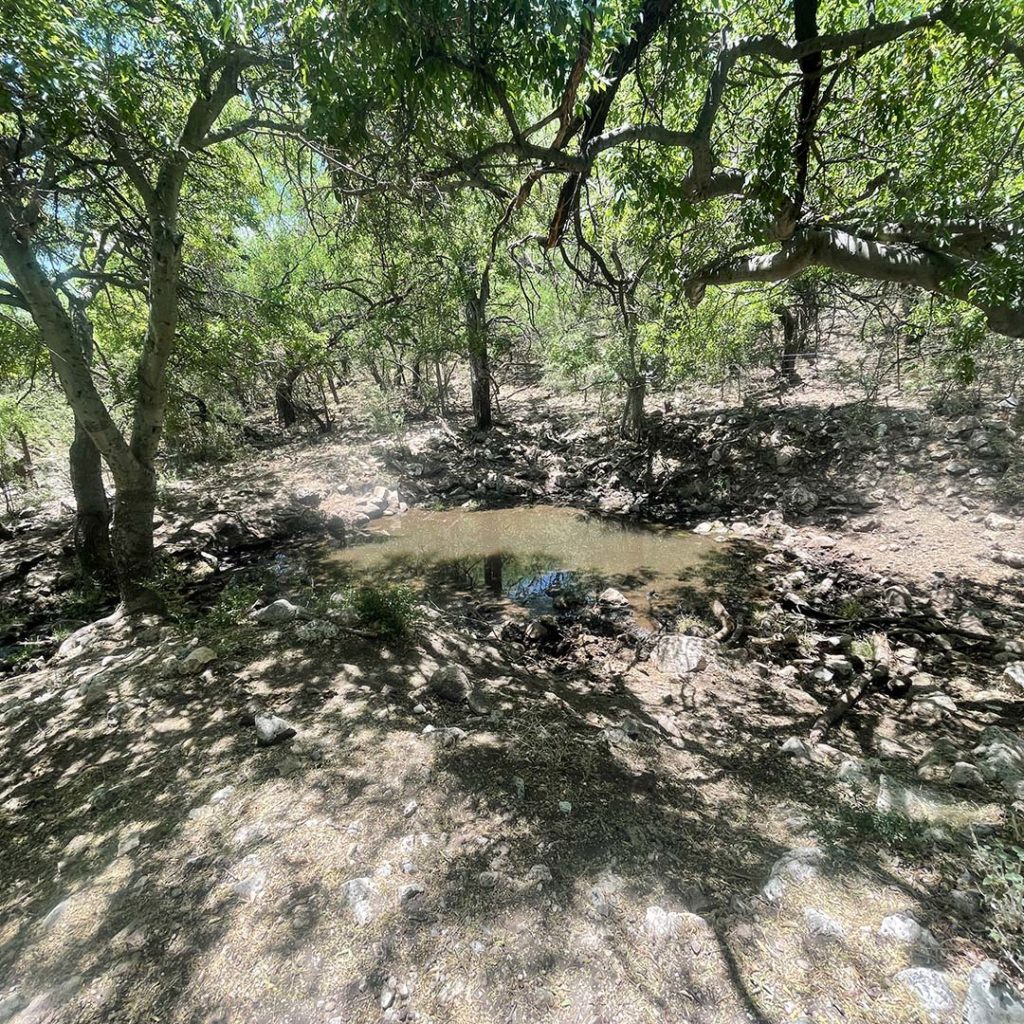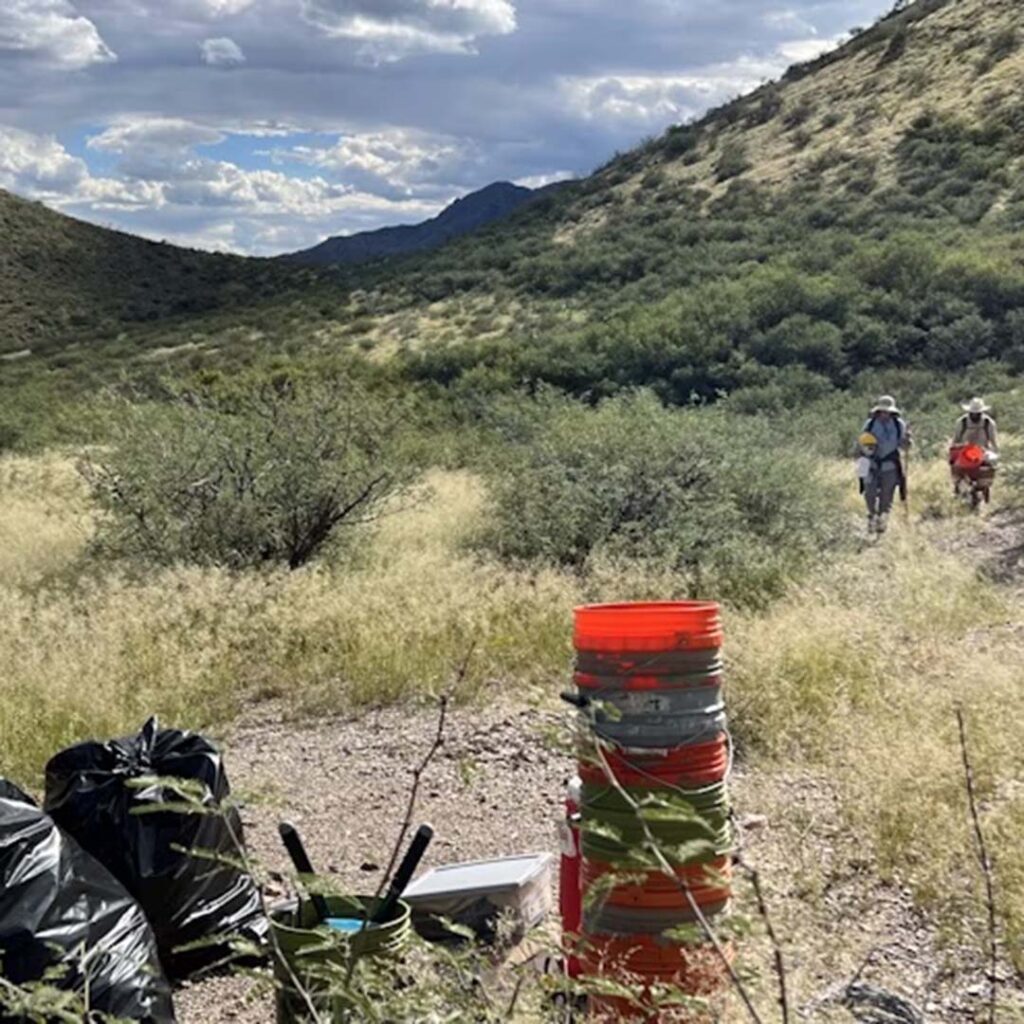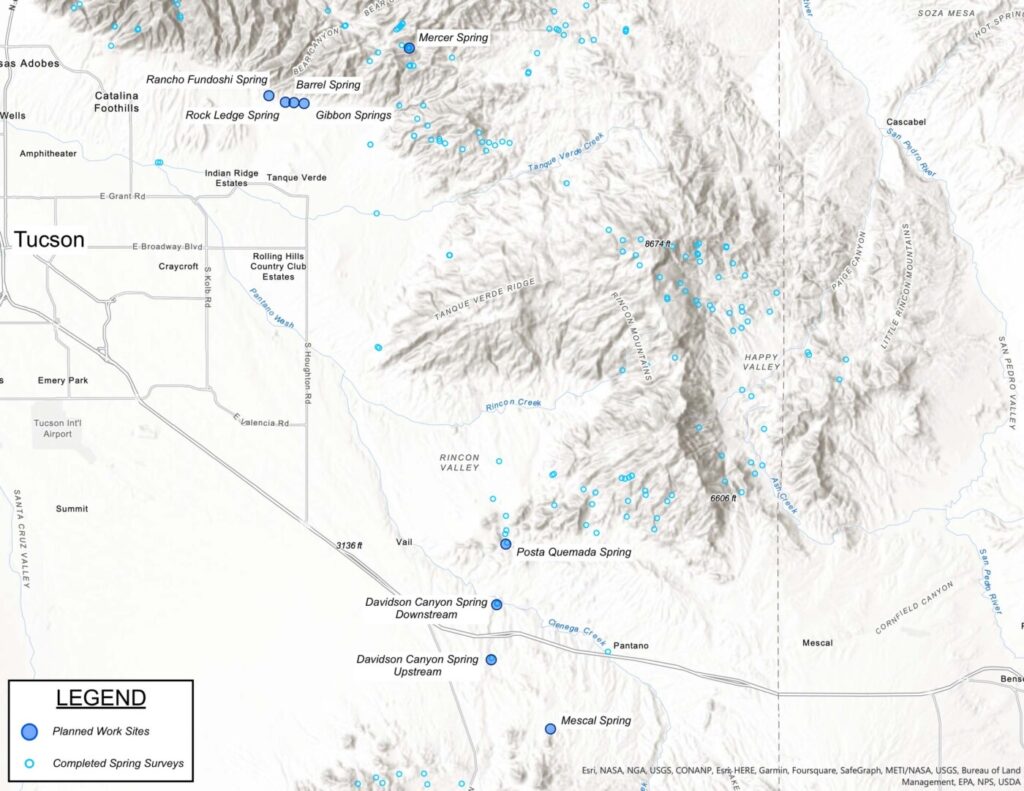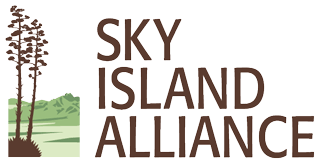


Sky Island Alliance is excited to announce the launch of a new campaign to remove invasive species at nine priority springs in the Tucson area. Over the next three years, we’ll be undertaking this restoration project alongside other local nonprofits, and there’s plenty of opportunities to get involved. Explore upcoming volunteer dates, and read on to learn more about this important work.
Project Overview
Spring ecosystems are critically important in the arid grasslands between mountain Sky Islands of the Sonoran Desert. Rivers in this region mostly flow due to stormwater or snowmelt, neither of which is available year-round, making springs an important water source for wildlife and native plants. Unfortunately, due to the presence of extra water, non-native invasive species, particularly grasses, persist on the landscape and out-compete native plants. Invasive species reduce biodiversity, increase fire frequency, and reduce ecosystem resilience in the face of climate change. Low-elevation springs are particularly vulnerable to threats from nearby urban areas, and these sites are even more critical because there are very few available for wildlife.
Working across multiple landowners and with our amazing volunteers, Sky Island Alliance plans to remove invasive species and plant native seeds at nine low-elevation springs in the Santa Cruz River Watershed to restore these vital oases.
What species will we be removing?
In this grant, we have permission to remove:
- Giant reed (Arundo donax) — these 20-30ft stalks can be cut with loppers, but it’s a workout! If you want to assist but are worried about the physicality, we need volunteers to help drag stalks and to remove other species around the sites that have Arundo as well. So even if this species is specified as the target for a particular date, there will be work for all.
- Salt cedar or tamarisk (Tamarix spp.) — this tree will be cut up by trained chainsaw operators, but we’ll need help after the trees are down to move the branches.
- Oleander (Nerium oleander) — this plant will be removed by trained chainsaw operators, but then we need help to dig out the roots.
- African sumac (Rhus lancea) — this tree will also be removed by trained chainsaw operators, but we need help to move branches offsite and dig up roots as possible.
- Various grasses including Bermuda (Cynodon dactylon), buffel (Cenchrus ciliaris), fountain (Pennisetum setaceum), red brome (Bromus rubens), and rabbitsfoot (Polypogon monspeliensis)
- Other invasive plants as requested by the landowners.
Some of these sites have endangered or threatened species, and by removing these invasive plants, we will give more habitat space to native plants, including these threatened ones. If you don’t know how to identify these species, no worries — we’ll teach you.
This project sounds great! How do I sign up?
Visit this signup page to choose the dates you’d prefer to attend. Because we’ll be moving sites regularly based on how much work there is to do at each location, you’ll get an update about a week before each event to learn the specific place we’ll be working at. For the most part, we’ll be on the northeast side of Tucson in the Sabino Canyon area, as well as on the southeast side of town near Vail and Davidson Canyon. Events will be on Tuesday mornings.
Bring your daypack, water, snacks, sunscreen, gloves, and favorite weeding tool. Wear weather-appropriate clothing (long sleeves and pants recommended), closed-toed shoes — and don’t forget a hat. Stay as long as you’d like; leave for work if you need to, and we’ll quit before it gets too hot!
Don’t forget to sign in when you arrive and check in with a Sky Island Alliance staff person. If you need to carpool, please email Sarah directly to set up rides from the office or from nearby asphalt, as some sites require high-clearance vehicles to get to.
If you have any questions or concerns, please contact Sarah Truebe (sarah@skyislandalliance.org, 520-624-7080 x 18). We hope to see you out there!
Oh no! I can’t make Tuesdays due to work or other commitments.
This project is a part of a larger invasive species removal effort through the the Arizona Department of Fire and Forestry Management’s Healthy Forests Initiative. If you have a group of volunteers from your work that would like to participate, please get in touch because we can accomodate that request. Our partners in this work may also have other workdays available. Check out the links below for more info.
- Arizona-Sonora Desert Museum
- Sonoran Institute
- Tucson Audubon Society
- Tucson Clean & Beautiful
- Watershed Management Group
Project Map


